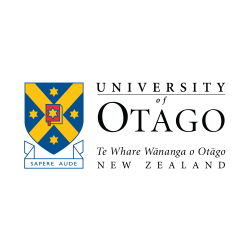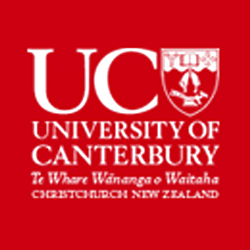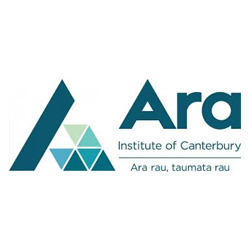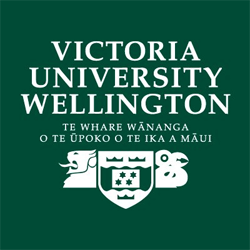
Inquiry-Based Learning
Status
Completed: 15 February 2009
Project Details
A two-year project, completed in 2008, to develop case study examples of inquiry-based learning at tertiary institutions and identify the impact of inquiry-based learning on student learning outcomes. A collaboration of University of Otago, University of Canterbury, Christchurch Polytechnic Institute of Technology and Victoria University of Wellington.
Aims:
The main aims of the project were to:
- identify, explore and share with the tertiary community, a variety of examples of IBL at undergraduate level across a range of faculties and institutions
- determine how IBL contributes to the development of graduate attributes in each institution and to government educational priorities
- determine the factors that both help and hinder the effective use of IBL.
Methodology:
The project employs a multi-institutional, qualitative case study approach, combining the thick description of individual case studies with cross-case thematic analysis (Merriam, 1998). This multi-perspectival approach results in a triangulation of evidence about practice.
The specific research questions for each of the case studies were:
- How and why do teachers design IBL activities?
- What are the intended learning outcomes of these activities?
- To what extent are the intended learning outcomes achieved?
- To what extent do the examples of IBL reflect individual initiative and teaching philosophy and to what extent are they reflective of a departmental teaching culture?
- In what ways does such teaching/learning contribute to the development of a shared community of practice/learners?
Team

Professor Rachel Spronken-Smith
University of Otago
Rebecca Walker
University of Otago
Billy O’Steen
University of Canterbury
Julie Batchelor
Christchurch Polytechnic Institute of Technology (now Ara Institute of Canterbury)
Helen Matthews
Christchurch Polytechnic Institute of Technology (now Ara Institute of Canterbury)
Tom Angelo
Victoria University of WellingtonStatus
Funding
$143,611.00 (excl GST)
Key Findings
The key finding from the project included:
- The key output from the project was the development of three or four in-depth case studies in each institution. Each case is explored from three perspectives or angles and each case contains a rich description of the teacher’s aims and objectives for the inquiry-based activity, the activity itself and its intended learning outcomes, the students’ experience of inquiry-based learning through this particular learning activity and the impact of inquiry-based learning on student learning outcomes.
- The cases of IBL studied in this research have illustrated that, in terms of student and teacher perceptions, IBL is successful in promoting higher order learning outcomes that will equip graduates well for further study or for the workforce. Thus, the evidence presented here suggests that this teaching approach is effectively contributing to the development of graduate attributes in each institution, as well as generating the type of graduate attributes desired by government educational priorities. However, it should be noted that this study was targeting IBL courses alone, so a comparative analysis with more traditional courses could not be undertaken. Nevertheless, the findings are in accord with previous research that suggest IBL is generally more effective than traditional teaching for achieving a variety of student learning outcomes such as academic achievement, process skills, analytical abilities and critical thinking.
- The cross-case analysis enabled identification of the factors (individual, departmental and institutional) that promote the effective use of inquiry-based approaches. The key findings echoed previous research in terms of teachers needing to have a student-centred teaching philosophy, and an excellent rapport with students.
Key Recommendations
The project made the following recommendations for future research:
Meeting the needs of students from diverse backgrounds | The project originally hoped to address the issue of how students from diverse backgrounds and with varying learning needs experience IBL. In particular, the project wanted to explore how IBL approaches meet the needs of Māori, Pasifika and international students. However, due to the available case studies, the project could not delve into these issues and future research could well pick up on this.
Relationship between knowing and doing | There was some difference in teacher opinion about whether the philosophy of a module was about ‘doing’ or ‘knowing’. Perhaps these should not be seen as opposites, but as interwoven, interconnected complementarities. The relationship between knowing and doing in an inquiry context would also be worthy of future investigation.
Adequate resourcing for IBL | The issue of adequate resourcing for IBL approaches should also be explored. If government is advocating such approaches, but resourcing is a barrier, then how can this be overcome? Resourcing issues should be explored in terms of staffing – particularly the impact of Performance-Based Research Funding and high student enrolments, as well as the provision of suitable learning environments, which may have impacts on building programmes in institutions.
Different conceptions of inquiry and research | Given the confusion surrounding the terminology further exploration of the different conceptions of inquiry and research, and the relationships between teaching and research in both environments, might help elucidate the different modes of IBL and probe the core tenets of inquiry approaches.
A poster prepared by Rachel Spronken-Smith, Rebecca Walker, Billy O’Steen, Julie Batchelor, Helen Matthews and Tom Angelo for the HERDSA Conference 2008.
(PDF, 900 KB, 1-page).
- 6 June 2008
A report prepared by Rachel Spronken-Smith, Rebecca Walker, Billy O’Steen, Julie Batchelor, Helen Matthews and Tom Angelo.
(PDF, 200 KB, 1-page).
- 6 June 2008
Report
Cross-Case Analysis
A report prepared by Rachel Spronken-Smith.
(PDF, 1.2 MB, 29-pages).
- 15 February 2009
A report prepared by Rachel Spronken-Smith and Rebecca Walker.
(PDF, 305 KB, 16-pages).
- 15 February 2009
Case study
Stage 1 Sociology Course – Case study
A report prepared by Billy O'Steen and Brigid Thompson.
(PDF, 526 KB, 11-pages).
- 15 February 2009
Case study
Stage 2 Engineering Course – Case study
A report prepared by Richard Jordan and Conan Fee.
(PDF, 386 KB, 10-pages).
- 15 February 2009
A report prepared by Billy O'Steen and Tika Ormond.
(PDF, 397 KB, 10-pages).
- 15 February 2009
A list of outputs from the Inquiry-Based Learning project.
(PDF, 134 KB, 1-page).
- 15 February 2009